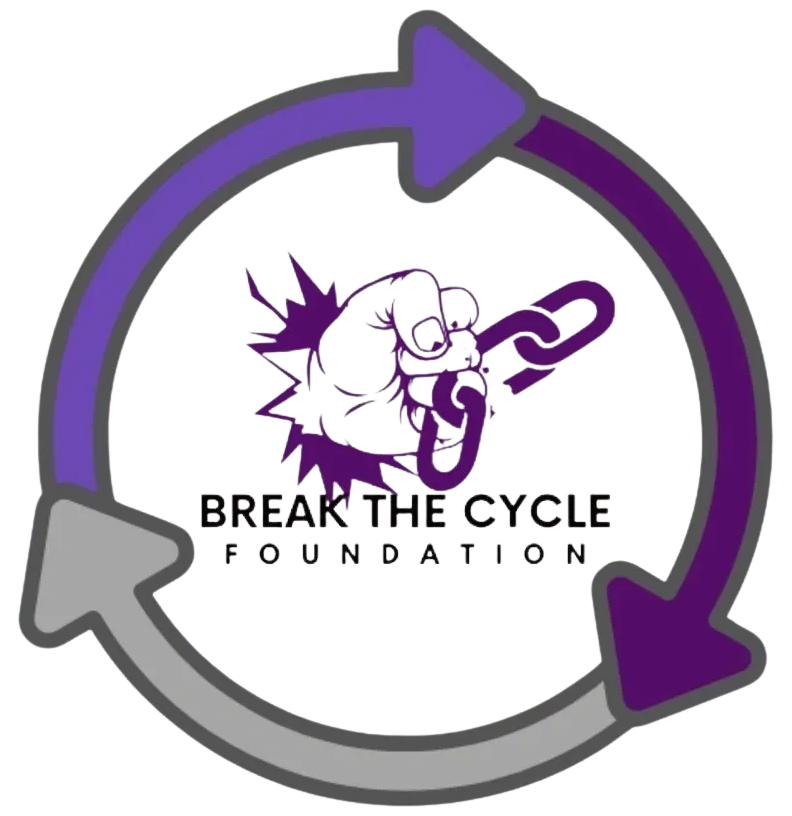The Importance of Intake Assessments
Intake assessments are the cornerstone of effective addiction treatment. They set the groundwork for understanding client needs and developing a tailored treatment plan. At Break The Cycle Foundation, we prioritize thorough intake assessments to ensure we provide the best possible care.
Significance of Intake Assessments
In the initial meeting with a client, our therapists conduct a detailed evaluation to collect key information. This helps us understand the client’s concerns, mental health history, and current functioning. The intake process is crucial as it provides an opportunity to:
- Learn more about the client’s reason for seeking support
- Develop rapport and trust
- Form a case conceptualization
- Establish treatment goals
This process lays the foundation for effective treatment planning and positive client outcomes. For more on what to expect during your first session, refer to our article on what to expect during your first outpatient therapy session.
Benefits of Comprehensive Intake Assessments
A comprehensive intake assessment offers numerous benefits, including:
- Personalized Treatment Plans: By gathering detailed information, we can create a tailored treatment plan that addresses the unique needs of each client.
- Improved Client Outcomes: Thorough assessments lead to better understanding, resulting in more effective interventions and improved outcomes.
- Continuity of Care: Accurate documentation ensures continuity of care, enabling different therapists to understand a client’s history and treatment trajectory.
- Compliance with Legal and Ethical Standards: Properly formatted and documented intake notes meet legal and ethical standards, protecting both the client and the therapist.
Incorporating advanced assessment tools and questionnaires helps enhance the accuracy and depth of our evaluations. We also leverage technology to streamline the intake process, making it more efficient for both clients and therapists.
| Benefit | Description |
|---|---|
| Personalized Treatment Plans | Tailored to address the unique needs of each client |
| Improved Client Outcomes | Better understanding leads to more effective interventions and improved results |
| Continuity of Care | Ensures different therapists understand a client’s history and treatment trajectory |
| Compliance | Meets legal and ethical standards for accurate and thorough documentation |
Understanding and overcoming the barriers in intake assessments is crucial for successful engagement. Whether addressing emotional barriers or motivational challenges, our team is dedicated to supporting clients every step of the way.
For more information on our techniques and the benefits of specific treatments, check out:
- What is Substance Use Disorder and How is It Treated
- The Benefits of Methadone in Opioid Treatment Programs
- Individual Counseling for Addiction: What to Expect
- Group Therapy for Substance Use: How It Supports Recovery
Conducting an Effective Intake Session
Conducting an effective intake session is pivotal to the success of addiction treatment at Break The Cycle Foundation. This session lays the foundation for building trust, understanding client needs, and setting the stage for successful recovery.
Establishing Trust and Rapport
Establishing trust and rapport during the intake session is essential. At Break The Cycle Foundation, we focus on creating a safe and welcoming environment where clients feel comfortable sharing their struggles and goals. According to SonderMind, the initial intake assessment allows us to learn more about the client’s reason for seeking support, form a case conceptualization, and establish treatment goals.
Effective listening is key. We employ both nondirective listening to encourage clients to express themselves freely and directive listening to guide the conversation towards specific concerns. This balance helps in understanding the client’s needs while creating a collaborative atmosphere.
Structuring the Intake Session
A well-structured intake session ensures that all relevant information is gathered systematically. Our intake sessions at Break The Cycle Foundation are designed to feel like guided conversations, allowing for natural dialogue while being goal-directed (SonderMind). This approach helps in forming an accurate case conceptualization for personalized therapy.
Key Components of an Intake Session:
- Motivation: Understanding the client’s motivation for seeking treatment.
- Symptoms: Identifying current symptoms and their impacts.
- Psychiatric History: Reviewing past mental health issues and treatments.
- Current Situation: Assessing the client’s current living conditions, support systems, and stressors.
We also employ clinical questionnaires and other assessment tools to gather quantitative feedback. This data supports the development of tailored treatment plans and ensures any needed follow-up assessments are addressed (SonderMind).
| Key Component | Purpose |
|---|---|
| Motivation | Understanding client’s drive for seeking help |
| Symptoms | Identifying current impacts on daily life |
| Psychiatric History | Reviewing past treatments and issues |
| Current Situation | Assessing living conditions and support systems |
Documentation from the intake session plays an important role in the therapeutic process. It ensures compliance with legal and ethical standards, continuity of care, and provides a strong foundation for future treatment (Blueprint.ai).
Explore more about what to expect during your first outpatient therapy session and individual counseling for addiction: what to expect.
By focusing on these key aspects, we at Break The Cycle Foundation ensure a comprehensive and empathetic approach to understanding the intake and assessment process, setting the stage for effective and successful addiction treatment.
Key Components of an Intake Assessment
Intake assessments are foundational steps in the journey toward recovery from substance use disorders. At Break The Cycle Foundation, we prioritize a detailed and compassionate approach to understanding each client’s unique situation. Key components of an intake assessment include gathering client information and addressing legal and ethical considerations.
Gathering Client Information
The initial phase of an intake assessment involves collecting comprehensive information about the client. This information helps us to tailor our treatment plans to meet the specific needs of each person. Key elements include:
- Personal and Family History: Understanding the client’s background is essential. This includes their personal history, family dynamics, and any history of substance use within the family.
- Presenting Problems: Detailed information on the reasons for seeking treatment, including the types of substances used, duration, frequency, and impact on the client’s life.
- Mental Status Examination: Evaluating the client’s current mental state to identify any co-occurring mental health conditions that may need to be addressed.
- Diagnostic Impressions: Initial thoughts and hypotheses about the client’s condition based on the information gathered.
- Safety Assessment: Determining any immediate risks, such as suicidal ideation or harm to others, which require urgent attention.
- Preliminary Treatment Goals: Collaborating with the client to set initial goals and expectations for the treatment process.
| Information Type | Importance |
|---|---|
| Personal and Family History | Context for treatment |
| Presenting Problems | Identify focus areas |
| Mental Status Exam | Assess mental health |
| Diagnostic Impressions | Initial hypotheses |
| Safety Assessment | Immediate risk evaluation |
| Treatment Goals | Direction for treatment |
It’s crucial to practice active listening and ask open-ended questions to gain a comprehensive understanding of the client’s unique situation and needs (Blueprint.ai). Building rapport and creating a warm, supportive environment encourages clients to share openly and honestly.
Addressing Legal and Ethical Considerations
Legal and ethical considerations are paramount in the intake and assessment process. Our team at Break The Cycle Foundation adheres to stringent guidelines to ensure compliance and maintain the highest standards of care.
- Informed Consent: Before starting the intake assessment, we provide clients with informed consent documents. These documents outline the nature of the treatment, potential risks, benefits, and the client’s rights.
- Confidentiality Limitations: We discuss the boundaries of confidentiality, including mandatory reporting requirements. Clients are informed that information may need to be disclosed if there is a risk of harm to themselves or others (SonderMind).
- Mandatory Reporting: In certain situations, such as when a client poses a risk to themselves or others, we are legally obligated to report this information. We ensure clients are aware of these obligations from the outset.
- Proper Documentation: Thorough and accurate documentation is essential for continuity of care, compliance with legal standards, and providing a foundation for future treatment (Blueprint.ai). Intake notes should cover all aspects of the session, including presenting problems, personal history, mental status, diagnostic impressions, and initial treatment goals.
| Legal/Ethical Consideration | Description |
|---|---|
| Informed Consent | Outlining treatment details and client rights |
| Confidentiality Limitations | Explaining boundaries and reporting obligations |
| Mandatory Reporting | Reporting risks of harm |
| Proper Documentation | Detailed intake notes for future reference |
Proper documentation ensures that we adhere to ethical guidelines and protect client privacy and confidentiality (Blueprint.ai). We also provide clients with clear communication about what to expect during the intake process and subsequent sessions, setting realistic expectations for their treatment journey.
By incorporating these key components, we ensure that each intake assessment at Break The Cycle Foundation is thorough, respectful, and legally compliant. This approach helps us create personalized and effective treatment plans for our clients, supporting their path to recovery.
For more information on the importance of intake assessments, visit our section on what is substance use disorder and how is it treated. You can also learn about the benefits of individual counseling in our article on individual counseling for addiction: what to expect.
Documentation in Intake Assessments
Importance of Proper Documentation
Proper documentation in intake assessments is crucial for maintaining accurate client records, ensuring continuity of care, and meeting legal and ethical standards (Blueprint). Effective documentation requires attention to detail, objectivity, and commitment to maintaining accurate and timely records.
Key elements to document during an intake session include:
- Presenting problems
- Personal and family history
- Mental status examination
- Initial diagnostic impressions
- Safety assessment
- Preliminary treatment goals
Ensuring detailed and precise documentation helps in creating a comprehensive view of the client’s background and needs, laying the foundation for future treatment. It is essential for our team to prioritize these practices to provide the best possible care (what to expect during your first outpatient therapy session).
Ensuring Privacy and Confidentiality
Documenting intake assessments presents unique challenges, such as ensuring the privacy and confidentiality of sensitive client information and maintaining accuracy and completeness in documentation.
Ethical and legal obligations must be considered before the first appointment. This includes preparing informed consent documents, discussing confidentiality limitations, and addressing mandatory reporting requirements if a client poses a risk to themselves or others, as required by certain states (SonderMind).
To ensure confidentiality:
- Use secure storage for paper records.
- Implement encrypted electronic record systems.
- Limit access to client information to authorized personnel only.
Our commitment to securing client information aligns with our dedication to ethical practices and enhancing client trust in our services (how structured counseling helps break the cycle of addiction).
| Consideration | Action |
|---|---|
| Confidentiality | Use encrypted electronic records |
| Legal Obligations | Prepare informed consent documents |
| Detailed Notes | Ensure mental status examination, safety assessment, and goals are recorded |
Proper documentation in intake assessments is integral to understanding the intake and assessment process and delivering high-quality addiction treatment services through Break The Cycle Foundation individual counseling for addiction: what to expect.
Implementing Assessment Tools
In our commitment to providing comprehensive addiction treatment services, we emphasize the importance of implementing effective assessment tools. These tools play a crucial role in accurately evaluating the needs of our clients and tailoring personalized treatment plans that aim to break the cycle of addiction.
Clinical Questionnaires and Tools
Employing clinical questionnaires and assessment tools can provide quantitative feedback to support therapy sessions. For instance, tools like the PHQ-9 allow therapists to gather baseline information about the client’s mental health and identify key issues to discuss during their first therapy session (SonderMind). These assessments are typically administered before the first session to establish a thorough understanding of the client’s state.
Mental health intake assessments can be conducted using various preformulated intake assessment forms such as general assessments, symptom checklists, risk assessments, and diagnosis-specific assessments. These forms help to understand the client’s background and determine appropriate treatments Mentalyc.
| Assessment Type | Purpose |
|---|---|
| General Assessments | Comprehensive overview of client history and current state |
| Symptom Checklists | Identifying specific symptoms and their severity |
| Risk Assessments | Evaluating potential safety concerns and risks |
| Diagnosis-Specific Assessments | Tailored questions related to specific diagnoses |
Documentation from the intake session is crucial in the therapeutic process, ensuring continuity of care, compliance with legal and ethical standards, and providing a foundation for future treatment Blueprint.ai. Intake notes should include presenting problems, personal and family history, mental status examination, initial diagnostic impressions, safety assessment, and preliminary treatment goals.
For more details on how individual therapy sessions are structured, visit our page on individual counseling for addiction: what to expect.
Incorporating Technology in Intake Assessment
Implementing technology in the client intake process can significantly improve engagement and satisfaction. Streamlining administrative tasks, gathering accurate client information, and integrating with Electronic Health Records (EHR) systems ensure efficient data transfer. These technological advancements also provide data-driven insights for personalized care plans Quenza.
Key benefits of incorporating technology include:
- Efficient data collection and management
- Enhanced accuracy and consistency in client records
- Improved client engagement through user-friendly interfaces
- Seamless integration with EHR systems for comprehensive care management
Our use of technology in intake assessments allows us to provide better, more personalized care. For more information on planning your recovery goals, read our guide on setting realistic recovery goals with your care team.
By incorporating clinical questionnaires, assessment tools, and technology, we ensure a thorough understanding of each client’s needs. This enables us to deliver effective, individualized treatment plans. Learn more about our approach in our detailed steps for how structured counseling helps break the cycle of addiction.
Overcoming Barriers in Intake Assessments
Emotional and Motivational Barriers
During the intake and assessment process, individuals often face significant emotional and motivational barriers. Identifying and addressing these barriers is essential for an effective addiction treatment experience.
Emotional Barriers
Emotional barriers can include resistance to change, fear of failure, and lack of focus. These barriers can make individuals feel uncomfortable and sabotage the assessment process.
- Resistance to Change: Many clients may be apprehensive about changing their current state, even if it means improving their health. Resistance is often rooted in fear or uncertainty about the future.
- Fear of Failure: Clients may fear that they will not succeed in their treatment, leading to hesitancy in fully engaging with the intake process.
- Lack of Focus: Emotional stress and anxiety can cause individuals to feel unfocused, making it challenging for them to engage effectively.
Motivational Barriers
Motivational barriers can significantly impact an individual’s willingness to participate in the intake process.
- Lack of Previous Knowledge: Clients who are not fully aware of what to expect in addiction treatment may lack the motivation to engage actively.
- Lack of Purpose: Without understanding the bigger picture of how the treatment aligns with their goals, clients may find it hard to stay motivated.
- Boredom and Isolation: Feeling isolated or bored can decrease motivation and make clients less likely to participate actively.
For more insights on overcoming these barriers, visit how structured counseling helps break the cycle of addiction.
Strategies for Engagement and Motivation
To effectively overcome emotional and motivational barriers, we employ several strategies to engage and motivate clients during the intake process.
Building Trust and Rapport
Establishing trust and rapport is crucial for a successful intake assessment. By creating a safe and supportive environment, clients are more likely to share openly and honestly.
Providing Clear Information
Clear and comprehensive information about the intake process and subsequent treatment can help alleviate fears and uncertainties. Clients should be well-informed about what to expect during their treatment journey.
| Strategy | Benefits |
|---|---|
| Building Trust | Creates a safe environment for sharing |
| Providing Clear Information | Reduces fear and uncertainty |
| Setting Realistic Goals | Ensures achievable milestones |
| Interactive Techniques | Enhances engagement through active participation |
| Support Systems | Provides emotional and motivational support |
Explore more on the importance of setting realistic goals with your treatment team in our article setting realistic recovery goals with your care team.
Setting Realistic Goals
Setting achievable and realistic goals helps maintain motivation throughout the treatment process. By breaking down larger goals into smaller, manageable steps, clients can see tangible progress, which boosts their confidence and commitment.
Using Interactive Techniques
To combat boredom and enhance motivation, we incorporate interactive techniques during the intake process. These may include group activities, Q&A sessions, and engaging presentations. For virtual assessments, we utilize videos, images, animations, and interactive quizzes to maintain client engagement.
Developing Support Systems
Creating a sense of community among clients can significantly impact their motivation and engagement. Allowing communication between clients and incorporating gamification elements like leaderboards can foster a supportive and motivated environment. Visit our article on group therapy for substance use: how it supports recovery to learn more.
By implementing these strategies, we aim to overcome emotional and motivational barriers, ensuring a more effective and engaging intake and assessment process. For deeper insights into the benefits of methadone in opioid treatment programs, visit our dedicated section.







